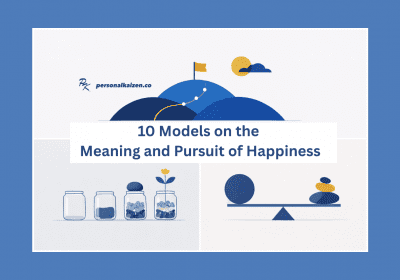We recently suggested ways to Stop Wasting Your Money with These 8 Simple Tips, a topic related to Rule 7 of the Personal Kaizen 10 Rules for Life. Our third tip was to only purchase insurance and extended warranties when there is a legitimate risk of a loss that you cannot pay for otherwise. Here are more details on ways to stop wasting money on insurance and warranties.
Wasting Money on Insurance

The purpose of insurance is to protect consumers from losses they cannot pay for otherwise. Liability insurance protects you from large expenses (life, property, healthcare, and lawsuits) that you wouldn’t be able to pay for otherwise. Life insurance supports survivors from the sudden loss of income. Home insurance will payout if you have large, unexpected payments due to accidents and disasters.
We believe many people waste money on products that reduce risk. We suggest you only purchase insurance when there is a legitimate risk of a loss that you cannot pay for otherwise. Or, if the cost of the insurance is somehow subsidized. These are the only times insurance is beneficial. Otherwise, it is probably costing you more money than it is saving you.
What Insurances You Should Purchase
Insurance is valuable if there is a risk of a loss that you cannot afford. A few areas I recommend you buy insurance are:
- Collision auto insurance with a high deductible that protects you in the event of an accident. This insurance is mandated in most states and often protects you up to $250,000-$500,000. The high deductible reduces your annual costs for the coverage and is affordable if you needed to use your coverage.
- Homeowners insurance (with a high deductible) if you own a home. This coverage is required if you have a mortgage and is still likely worth it anyway since a fire could wipe you out otherwise.
- Health insurance, either primarily employee paid or a high-deductible plan with a Health Savings Account. You can pay cash for minor items, but major health events can be very costly. The HSA is also an excellent way to save money tax-free that is available in the event of a future emergency.
Save Your Money and Don’t Buy This Insurance
Here is where I would consider NOT purchasing insurance:

- Comprehensive auto insurance, unless required by your automobile loan. We currently purchase comprehensive insurance on any vehicle we own that has a market value of more than about $25,000 (a loss that would really hurt.) However, we stop the coverage otherwise. Avoiding this coverage could save you $500 per year – an amount that adds up quickly.
- Life insurance coverage can be expensive. Survivors may benefit (if you have any), but only if they know how to apply for and qualify to receive the benefits. I suggest taking the money you would spend on this insurance and investing it in a retirement account instead.
- Long-term disability insurance covers a loss of wages if you are disabled and unable to work. Fortunately, most of us already have life insurance and disability insurance! Social security benefits are paid in both instances, and worker’s compensation benefits in most states support a loss as well.
Why You Should Never Pay for an Extended Warranty
We recommend you always avoid paying for extended warranties. Most products have a manufacturer’s warranty that covers you in the event of an issue you discover later. This is enough to cover most issues – and extended warranties typically only begin after the regular warranty period is over.
Extended warranties are complicated and often contain clauses and fine print that essentially make the coverage worthless. They cover manufacturer defects that somehow only appear later. Here are some things that will not be covered by an extended warranty:
- User-caused damage, user error, or misuse (something that is your fault)
- Theft, loss, or vandalism
- Natural disasters, storms, etc.
- Lack of use
Even if you ever did have a loss that was covered by an extended warranty, it would still require you to file the claim, provide your original receipt, prove you bought the extended coverage in the first place, and prove it was not misuse, etc. My time is too valuable to me to waste it on the work it takes to collect the benefits!
Free Extended Warranties

Now that you always refuse extended warranties, did you know you might be covered anyway?
Note that when you purchase items with credit cards you often have some free coverages as a benefit (but I bet you didn’t know this because you didn’t read the fine print!) You can learn more about this perk and how to maximize credit card bonus points and cash back in an upcoming post.
Summary
Do you agree with our ways to stop wasting money on insurance and warranties? Take a look at how much money implementing these changes can save you, and how quickly you could fund an “emergency account” with those savings. For our family, these decisions saved us over five thousand dollars in 2022. Plus, we expect additional savings to continue in future years. Using an HSA with our high-deductible health insurance allowed us to put about $21,000 into tax-free savings. We invested the money in this account (learn about putting lazy money to work for you next week) and as of June 2022, it has grown to over $32,000.
Please write a comment below to let the Personal Kaizen community know how much money you have saved by implementing these ideas.




